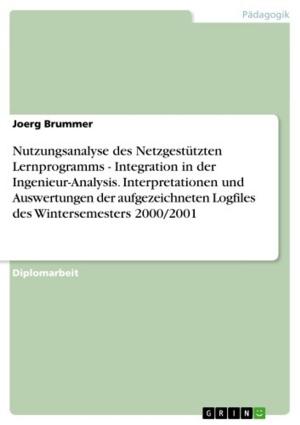| Author: | Berenice Walther | ISBN: | 9783638604833 |
| Publisher: | GRIN Verlag | Publication: | January 30, 2007 |
| Imprint: | GRIN Verlag | Language: | English |
| Author: | Berenice Walther |
| ISBN: | 9783638604833 |
| Publisher: | GRIN Verlag |
| Publication: | January 30, 2007 |
| Imprint: | GRIN Verlag |
| Language: | English |
Seminar paper from the year 2006 in the subject American Studies - Literature, grade: 1,7, University of Münster (Englisches Seminar), course: Contemporary American and Canadian Fiction, 23 entries in the bibliography, language: English, abstract: Oral storytelling is a tradition inherent to all cultures. By definition, its genre is determined by its original oral transmission; many of the world's greatest literary classics such as El Cid, La Chanson de Roland, Beowulf or the Odyssey were originally orally transmitted. In most cases the author is unknown and the story has undergone many modifications in the course of the telling processes; still they are today's primary testimonies for language, history, culture and people of the past. In this paper, a definition of oral storytelling will be provided along with an introduction in order to define the subject matter as well as the significance of putting oral storytelling into writing as Silko did in Ceremony. Leslie Marmon Silko was brought up in the Laguna Pueblo community in New Mexico, a Native American tribe where storytelling plays an important cultural role . For Silko, the process of writing her novel Ceremony was not only a way of staying sane - as she states herself - but also to identify with her Native American origins. In this novel, she points out the opposition between the Native stories about reciprocity with nature and Euro-American stories of dominion. This confrontation is a conflict of two paradigms reflecting the protagonist's, Tayo's, inner state of mind; he has to reconstruct stories to reestablish an agreement with both cultures - for himself. The main focus will therefore be on the forms and functions of storytelling in the novel itself. Hereby, crucial aspects revolving around the cultural differences between Native American and Euro-American culture, the clash of cultures and both sides' impact on the individual will be in the center of discussion. The conclusion summarizes the paper's assessment of the results attained.
Seminar paper from the year 2006 in the subject American Studies - Literature, grade: 1,7, University of Münster (Englisches Seminar), course: Contemporary American and Canadian Fiction, 23 entries in the bibliography, language: English, abstract: Oral storytelling is a tradition inherent to all cultures. By definition, its genre is determined by its original oral transmission; many of the world's greatest literary classics such as El Cid, La Chanson de Roland, Beowulf or the Odyssey were originally orally transmitted. In most cases the author is unknown and the story has undergone many modifications in the course of the telling processes; still they are today's primary testimonies for language, history, culture and people of the past. In this paper, a definition of oral storytelling will be provided along with an introduction in order to define the subject matter as well as the significance of putting oral storytelling into writing as Silko did in Ceremony. Leslie Marmon Silko was brought up in the Laguna Pueblo community in New Mexico, a Native American tribe where storytelling plays an important cultural role . For Silko, the process of writing her novel Ceremony was not only a way of staying sane - as she states herself - but also to identify with her Native American origins. In this novel, she points out the opposition between the Native stories about reciprocity with nature and Euro-American stories of dominion. This confrontation is a conflict of two paradigms reflecting the protagonist's, Tayo's, inner state of mind; he has to reconstruct stories to reestablish an agreement with both cultures - for himself. The main focus will therefore be on the forms and functions of storytelling in the novel itself. Hereby, crucial aspects revolving around the cultural differences between Native American and Euro-American culture, the clash of cultures and both sides' impact on the individual will be in the center of discussion. The conclusion summarizes the paper's assessment of the results attained.















